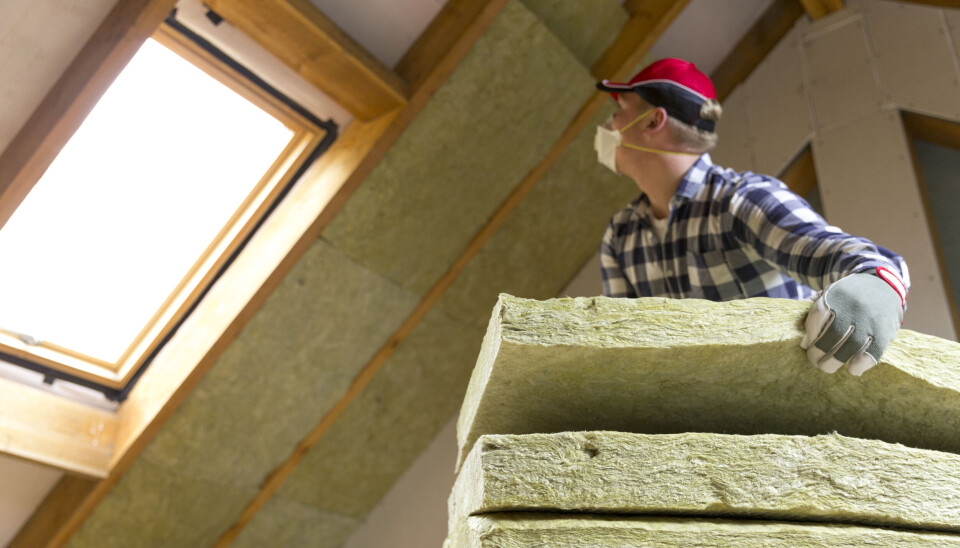-
Restoring a 400-year-old French property: an Englishman's award-winning journey
Ron Alldridge transformed a derelict house in Var into a masterpiece, blending history with craftsmanship
-
'I have a 180-degree view of the sea – like living on a boat'
Vicki Jeynes fell in love with La Pagode, a unique house in the south of France, and fulfilled her dream of living by the seaside
-
Inside my 'stylish, soulful and sustainable' hotel renovation in the south of France
Planning a restoration project? We get some eco tips from the owner of a stunning refurbishment in the Aude
France revamps energy renovation grants scheme to boost take-up
MaPrimeRénov’ rules for homeowners and tradespeople to become simpler after applications plummet

The state grant scheme to encourage home energy renovation is due for more changes this month – just three months after the last shake-up.
The updates were announced after trade bodies and builders complained about a sharp drop in people seeking MaPrimeRénov’-related estimates.
MaPrimeRénov’ requests dropped by 40%
“This is an essential step to relaunch the market,” said Jean-Christophe Repon, president of the Confédération de l’Artisanat et des Petites Entreprises du Bâtiment (Capeb).
“We must all do what we can to ensure a large number of renovations are carried out in a strong framework, backed by operational efficiency, to ensure that at the end of 2024 we are not left in the same situation as we were at the start of the year.”
Figures released by the housing ministry at the start of March show the number of requests for MaPrimeRénov’ devis (quotations) dropped by 40% in January and February, compared to the same period last year.
A devis is legally binding on price, unlike in some countries, and bills exceeding it are only allowed in a few specific cases.
Read more: Tips to avoid home renovation scams in France
Now allowed to get one energy-saving measure at a time
Part of the reason might be that homeowners are being more careful with their money after nearly two years of galloping inflation, but the Fédération Française du Bâtiment, representing builders, and Capeb put most of the blame on MaPrimeRénov’ changes that came into force on January 1.
These included stopping grants for people who undertake only one aspect of an energy-related renovation – insulating only a roof space rather than also installing double glazing, for example.
This will be reversed by decrees promised for the second week of April – for a year.
Among the so-called mono-geste projects now allowed are wall and roof insulation, which in 2023 represented between 80% and 90% of the energy renovation market.
Read more: Homeowners in France at risk of being sued by subcontractors
Easier for homeowners to get started
Other U-turns include removing the requirement to have a DPE certificate for the property before applying for grants, which can cost in excess of €200, and ending the obligation to change fossil fuel heating systems before insulating a home.
The number of France Rénov’ advisers offering face-to-face support will also be increased.
Less paperwork for tradespeople
Meanwhile, the government has promised tradespeople a reduction in paperwork, as well as a less costly way of getting the Reconnu garant de l’environnement (RGE) certification required for any grant-related work.
Until now, this has cost builders around €4,000 for a four-year certificate and required at least 200 pages of form-filling.
As a result, the number of tradespeople seeking RGE accreditation has fallen over the last three years.
Read more: Why it is hard to find people to do French eco-renovation grant work
Now the government has said it will accept a less costly route, taking into account the applicant’s experience.
Other tweaks include a system of on-site controls proportional to the sort of work being done, a ban on non-RGE firms hiring RGE subcontractors, and limiting the amount of subcontracting allowed.
Government has smaller budget for scheme
The slowdown in the number of requests for quotes might yet turn out to be a good thing for the government after the MaPrimeRénov’ budget was hit by a recent economy drive.
Instead of receiving an extra €1.6billion, as promised at the end of last year, the grant scheme now has around €1billion less than in 2023.
























